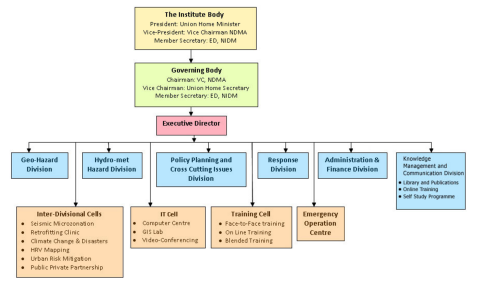Radioactive Performances: Teaching about Radiation after the Fukushima Nuclear Disaster
Following the 2011 Fukushima nuclear disaster and its release of radioac- tive contamination, the Japanese state put into motion risk communica- tion strategies to explain the danger of radiation e
COVID-19 Rapid Student Interview Project

This project aims to provide an engaging project for post-secondary students (undergraduate and graduate) to gain experience with qualitative research methodology while contributing to public
pece_annotation_1475710444
hayley.frankThe Minister of Home Affairs acts as the President, and the Vice Chairman of the NDMA (National Disaster Management Authority) acts as Vice President. The body of the organiation is comprised of 42 members including secretaries of nodal Ministries and Departments of Government of India and State Governments, the heads of national scientific, research and technical organizations, and eminent scientists and practioners. The governing body of the organization, which runs its day to day operations, is comprised of 16 members, and is chaired by the Vice Chairman of the NDMA, with the Secretary of Home Affairs acting as the Vice President.

pece_annotation_1475709445
hayley.frankThe Disaster Management Act of 2005 constitutes the responsibilites of the NIDM to be human resource development, capacity building, training, research, documentation and policy advocacy in the field of disaster management. The organization aims to promote disaster management as a high priority in the national goverment. They also aspire to create "a culture of prevention" pertaining to disasters that involves all stakeholders.
pece_annotation_1475709170
hayley.frankpece_annotation_1475709096
hayley.frankThe Disaster Management Act of 2005 constitutes the responsibilites of the NIDM to be human resource development, capacity building, training, research, documentation and policy advocacy in the field of disaster management. The organization aims to promote disaster management as a high priority in the national goverment. They also aspire to create "a culture of prevention" pertaining to disasters that involves all stakeholders.

In the aftermath of the 2011 Fukushima nuclear disaster, citizen scientists collectively tracked and monitored residual radioactivity in Japan, legitimizing alternative views to an official assessm